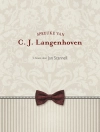Most people who live in open societies, especially in the West, take freedom of thought and expression for granted. Yet throughout most of history, independent thinking was discouraged and often persecuted. The battle for independence of mind continued for centuries. In Freedom of Thought, J.B. Bury provides a dramatic survey of intellectual history, clearly and eloquently describing the struggle for intellectual freedom from ancient times to the beginning of the 20th century. He guides the reader from the flowering of rational inquiry in early Greece, through the suppression of free thought during much of the Middle Ages, to the rediscovery of classical philosophy in the Renaissance, and finally to the growth of rationalism beginning with the Age of Reason in the 17th century. Along the way, Bury explains the key vents that contributed to the modern rational and understanding of nature and offers concise sketches of the many important persons philosophers, scientists, and writers who championed freedom of thought and laid the foundation of contemporary Western culture. Although originally published in 1912 with an epilogue added to the second edition in 1952 this scholarly yet accessible work should be in the collection of all personals who value freedom o f thought and expression.
Yazar hakkında
Most people who live in open societies, especially in the West, take freedom of thought and expression for granted. Yet throughout most of history, independent thinking was discouraged and often persecuted. The battle for independence of mind continued for centuries. In Freedom of Thought, J.B. Bury provides a dramatic survey of intellectual history, clearly and eloquently describing the struggle for intellectual freedom from ancient times to the beginning of the 20th century. He guides the reader from the flowering of rational inquiry in early Greece, through the suppression of free thought during much of the Middle Ages, to the rediscovery of classical philosophy in the Renaissance, and finally to the growth of rationalism beginning with the Age of Reason in the 17th century. Along the way, Bury explains the key vents that contributed to the modern rational and understanding of nature and offers concise sketches of the many important persons philosophers, scientists, and writers who championed freedom of thought and laid the foundation of contemporary Western culture. Although originally published in 1912 with an epilogue added to the second edition in 1952 this scholarly yet accessible work should be in the collection of all personals who value freedom o f thought and expression.












